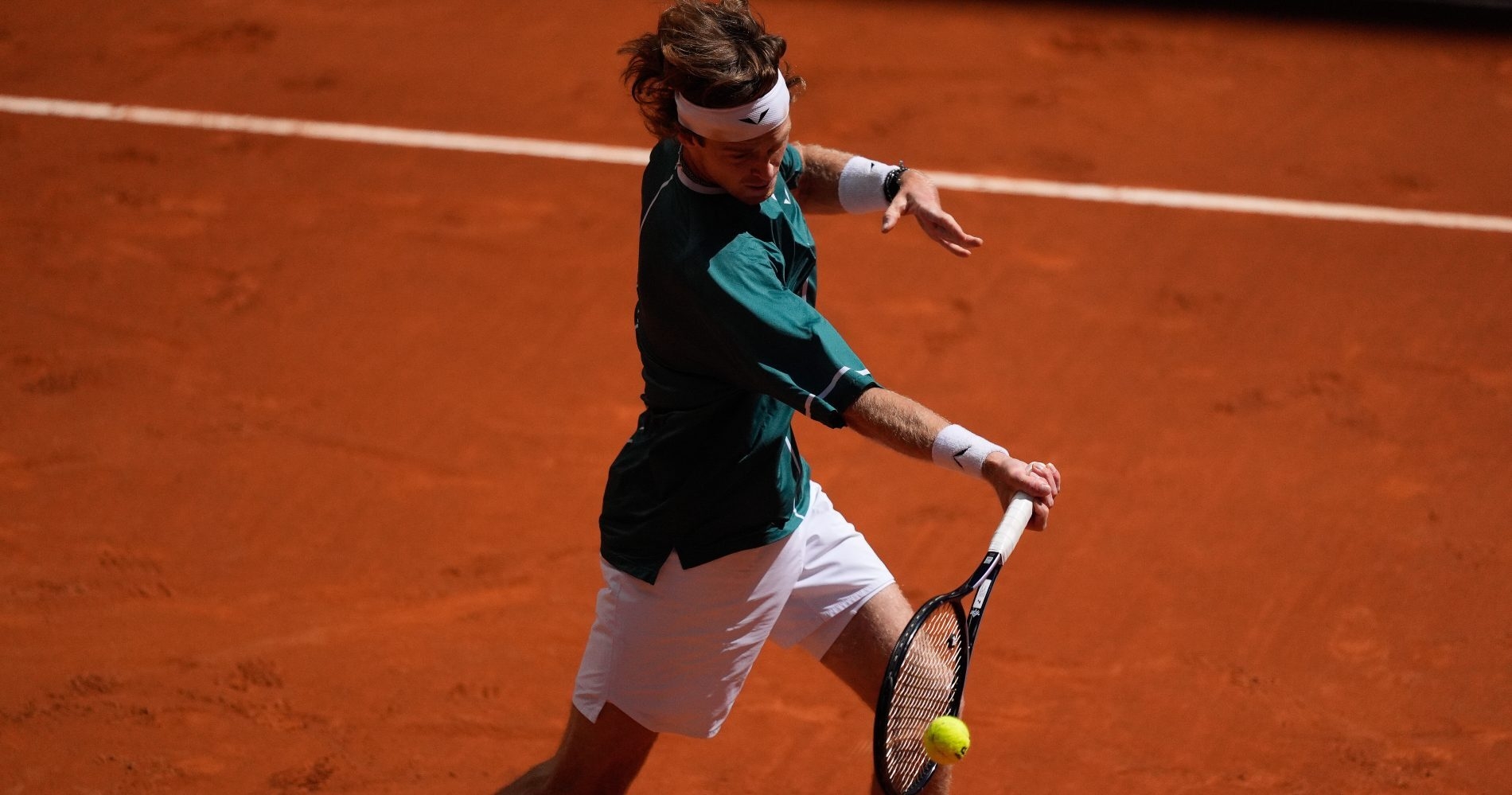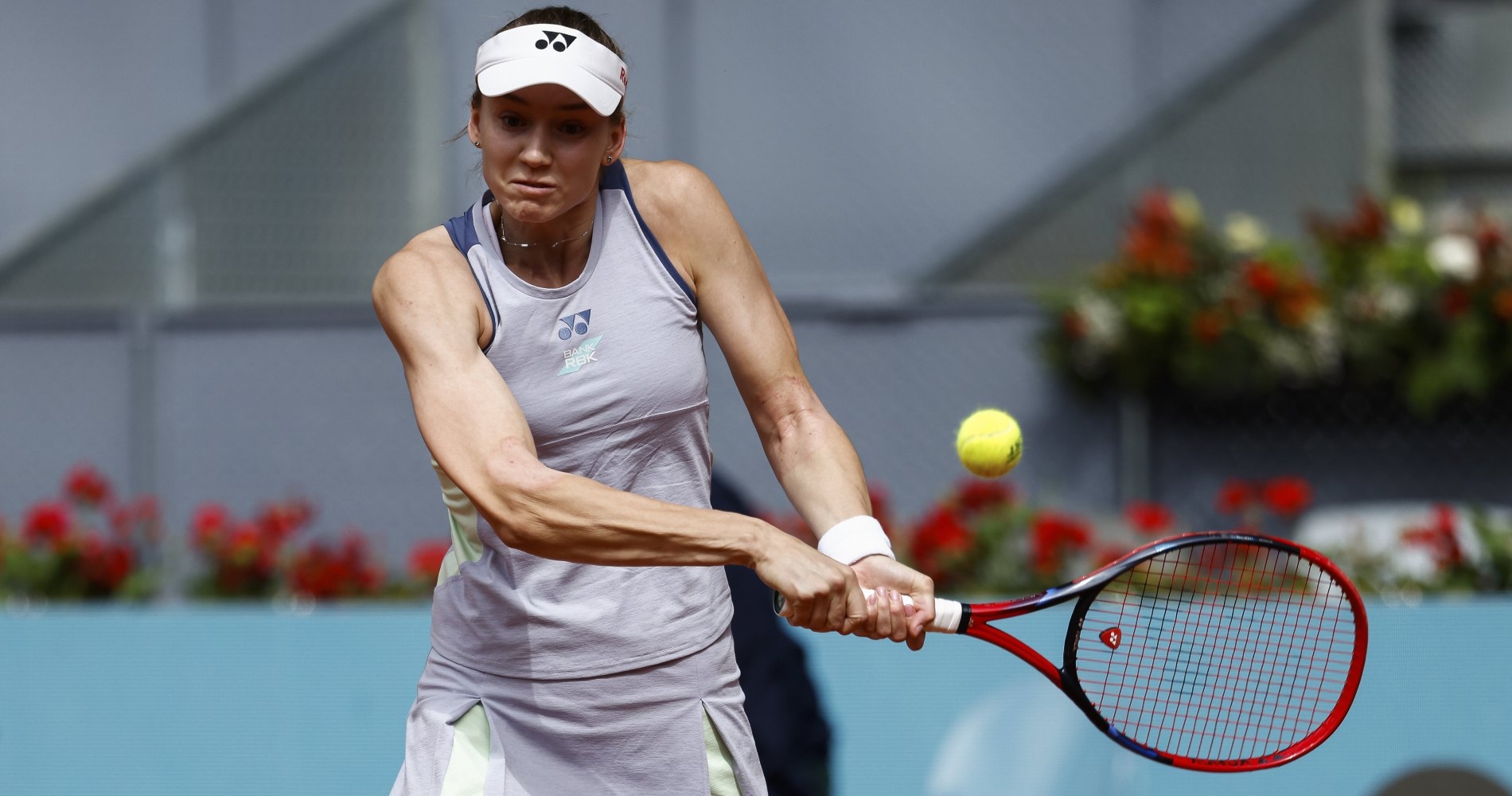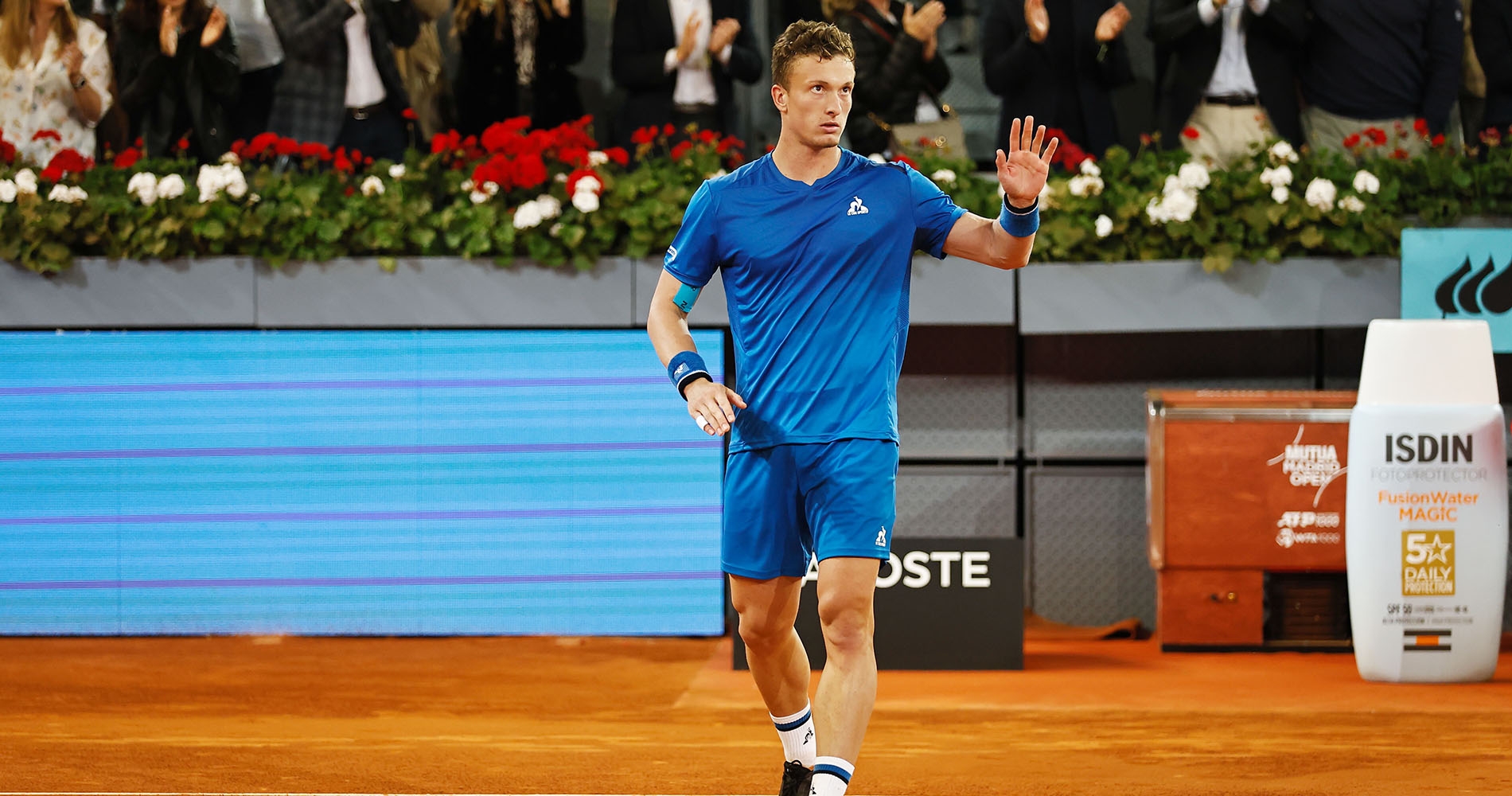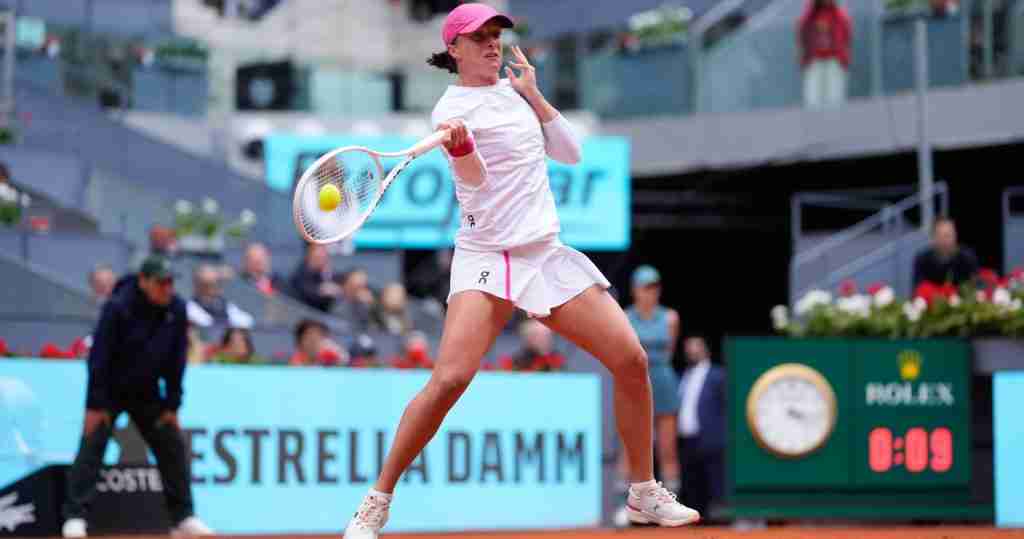Judy Murray, the mother of Grand Slam champions Andy Murray and Jamie Murray, is among those who find the new schedule too long. “I loved Madrid and Rome when they were regular events. Now they are zzzz. Too long, difficult to follow and likely to lead to injury risks for top pre-RG players,” she tweeted this week.
..Mentally it’s a little harder, because you have to stay focused for two weeks, not just one week.
Andrei Rublev


The players themselves have a mixed opinion on the matter because Andrei Rublevwho will face Félix Auger-Aliassime in the men’s final on Sunday, shared his thoughts on the matter.
“Difficult question, because there are some things I feel good about, others I don’t feel good about,” the Russian said. “For example, I feel good now, I have a day off. I can recover a little. I can recover a little physically and be more ready for Sunday. Then, of course, mentally it’s a little harder, because you have to stay focused for two weeks, not just one week. So mentally, maybe you’re a little bit more, after two weeks you’re a little bit more exhausted than if you play a week-long event.
Women’s world number 1 Iga Swiatekwho faces world number 2 Aryna Sabalenka in the women’s final on Saturday, is evenly split between pros and cons.
“Honestly, it’s difficult to say, because I can sympathize with both opinions,” said the Pole. “There are definitely times when it feels like you have those days off and it would be nice to finish early. When we have, for example, a week off before a Grand Slam, maybe we can have more time and go home a little. But yeah, we’re in that kind of situation on tour where we’re going to be leaving the house for more than two, three months, and we kind of have to adapt to that.
“On the other hand, it really helps when you have a day off to be physically ready for the next match, so I would say that physically it’s a little easier to recover during tournaments, but mentally it you have to be ready for the next match these long tournaments without really having days off, because even when we have a day off we usually come here and we practice and we see courts, we see these faces, you know. , eat the same food So it’s not like you can completely disconnect. So yes, on the one hand, it’s easier physically, but on the other hand, mentally, it’s sometimes harder. .
.. For these tournaments like Madrid and Rome to be so long, and then there’s Roland-Garros, they’re kind of big events.
Elena Rybakina


Elena Rybakinaone of Swiatek’s biggest rivals on the WTA Tour at the moment and a semi-finalist in Madrid where she traveled to Sabalenka, is however not a fan of the expanded schedule.
“I think it was like before if we have a two-week tournament, Indian Wells, Miami, that’s good, but for these tournaments like Madrid and Rome to be that long, and then you have Roland Garros, it “It’s kind of big events,” he said. » declared the Kazakh. “With the new rule change, we have a lot of mandatory things where you can’t really choose what you want to play, because, at some point, it’s pretty fair for people to choose what they want to play or no, because if the tour is good for everyone, then people will want to play.
“But now we are going in the opposite direction, where we have to, because everyone is chasing the ranking and everyone is chasing a few points and so on. But if it was open to everyone, then it would be fair enough. You want to play, you play. If you don’t want to play, you don’t play. So I think there is a lot to improve on the circuit, and I spoke a lot last year. Honestly, I don’t have much energy left to fight and express my opinion, because it’s not that easy to change something. I feel like I’m wasting even more energy trying to do something different or talk to people.
Medvedev is among those who like the new schedule, saying the rest days should ideally mean fewer injuries for players, although the men’s draw in Madrid this week was not the best example.
“I think the logic should be the opposite, because you have days off and stuff like that, and me personally, I like that two-week format. It’s one and a half. I like it for, let’s say, personal reasons, I like when there is a day off,” said the Russian. “I like the fact that it brings more importance, in my opinion, because then you kind of know that if you want to do well on tour, you kind of have to play these Masters and the other tournaments, you have to choose wisely, because if you play well on the two week Masters, there’s no lots of weeks where you can add tournaments. So me personally, I like it, and I don’t think any injuries would come from this format.
It’s not easy to be away from home for four weeks…
Jiri Lehecka


For the new generation, like 22 year olds Jiri Leheckawho reached his first Masters semi-final this fortnight in Madrid, the experience of playing week-long Masters events is not yet deeply ingrained.
“For me, I’m still in a situation where I haven’t really played a lot of week-long tournaments. Last year was the first year in my career where I played the entire ATP schedule on tour. I’ve played all the Masters 1000 events. I’m still trying to find what’s good for me, where I feel good, and that’s something that probably takes a long time. It’s not easy to be away from home for four weeks if, let’s say, you play well somewhere, let’s say here and then you have to go straight to Rome, or if you’re in the United States, you compete well at Indian Wells and then you have to stay there for the Miami Open, it’s not easy, you know, to participate in these tournaments for so long. But that’s part of the game, you know. Whoever gets through these times better, who is better and who feels more confident to stay away from home, then those are the players who are more successful. So that’s probably it.
With more Masters events planned to span two weeks next year, the new format looks like it will be here for at least a while and players will have no choice but to adapt.

